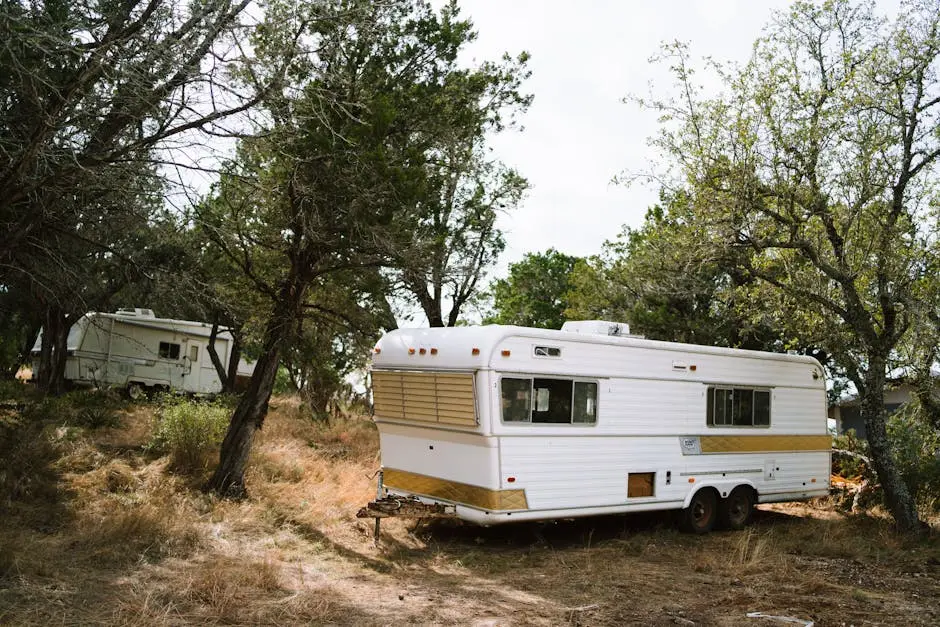Boondocking can often seem intimidating, especially for newbies looking to explore the vast and beautiful landscapes of Texas in their RVs. Many myths surround the idea of boondocking, leading to misconceptions that can deter enthusiastic adventurers. This article will debunk some of the most common myths, offering clarity and encouraging more RV enthusiasts to embrace the joys of off-the-grid camping.
1. Boondocking is Just for the Experienced
Many think that only seasoned RVers can boondock successfully, but this isn’t true. It’s accessible for all skill levels, and with a bit of preparation, anyone can enjoy it. We suggest starting with a simple checklist: research your locations, assess your RV’s capabilities, and understand your needs. Plus, countless online resources and communities support newcomers, making the transition seamless.
Moreover, it’s all about embracing the learning curve. Each trip can teach you something valuable about your RV, your journey, and even yourself. You’ll discover that it’s not just about experience; it’s about a spirit of adventure and openness to new possibilities!
2. You Need Expensive Gear
A common belief is that boondocking requires specialized or costly equipment. In reality, many RV enthusiasts enjoy this experience using basic gear and smart planning. You don’t need a high-end RV outfitted with solar panels and the latest gadgets to get started. A reliable cooler, a portable water tank, and some inexpensive camping accessories can do wonders.
Consider tapping into what you already own. Many people find that their regular camping gear can easily be adapted for boondocking. A simple mindset shift from camping in a developed campground to embracing the more spontaneous spirit of boondocking can make all the difference. After all, adventure doesn’t have to come with a steep price tag!
3. It’s Unsafe to Boondock Alone
Safety concerns often keep people from boondocking solo. However, with the right precautions and awareness of your surroundings, solo boondocking can be safe and fulfilling. Start by choosing well-reviewed sites and researching their safety ratings. You may also want to check in with fellow boondockers through online groups to get a feel for any issues you should be aware of.
Moreover, many solo RVers find a sense of empowerment and self-discovery while on the road. Engaging with nature in solitude can be rejuvenating, allowing you to reflect, unwind, and truly connect with your surroundings. While it’s always important to prioritize safety, let go of the fear that solo trips are inherently dangerous.
4. You Won’t Have Access to Water
Many think that boondocking means foregoing water sources entirely. In truth, many spots offer nearby water access; it’s all about planning ahead. Certain areas of Texas specifically cater to RVs, providing places to refill water tanks and often marked on maps or boondocking apps. Understanding the geography of your chosen location will enhance your experience and allow for more spontaneity in your travels.
Additionally, investing in a good water filtration system can ease concerns about water quality. Many RVers find comfort in using purification tablets or portable filters that can turn natural water sources into safe drinking water. So before you set off, map out your water sources and consider that the desert landscape of Texas holds unexpected treasures!
5. There’s No Internet While Boondocking
The idea that boondocking means total disconnection is a myth. While it varies by location, many areas have mobile signal and even Wi-Fi in some campgrounds. With the rise of technology, you might be surprised to find spots in Texas where you can work remotely while enjoying the great outdoors. Before your trip, check coverage maps and app reviews to identify signal strength across your route.
Moreover, using a mobile hotspot can keep you connected even in more remote locations. This opens up possibilities for online planning and accessing resources while away from bustling towns. So go ahead and share your adventures; those beautiful sunset pictures will garner much more appreciation with a little connectivity!
6. You Can’t Camp in State Parks
State parks can indeed allow boondocking, with some providing designated spaces. It’s worth checking specific regulations beforehand. Texas boasts numerous state parks where you can boondock legally, offering not only scenic beauty but also access to park amenities.
However, each park has its own rules—some might require reservations or charge a fee. Therefore, being an informed traveler not only ensures compliance but also enhances your experience. Use resources like state park websites or local tourism boards to find the best spots and stay updated on any changes.
7. Boondocking is Only for Camping
Some believe boondocking only involves sleeping overnight. However, it’s also great for day use, allowing for a variety of activities amidst nature. You can set up your RV at a scenic location and spend your day hiking, fishing, or simply enjoying a good book under a tree.
This flexibility can make your boondocking experience even more enjoyable. Whether you want to simply relax, partake in outdoor activities, or even cook out with friends, day-use opportunities are abundant. Don’t limit yourself to just catching Zs; explore the endless activities that boondocking offers!
8. It’s All About the Wilderness
While many associate boondocking with wilderness areas, urban boondocking is also an option. Many urban spots provide the perks of being close to amenities and attractions. Imagine parking your RV near a bustling city, enjoying the local food scene while having natural retreats within driving distance.
This kind of boondocking can appeal to anyone desiring both nature and urban conveniences. It showcases the adaptability of boondocking styles. Whether you’re in serene landscapes or vibrant cityscapes, there’s a unique adventure waiting at every turn.
9. You Must Leave No Trace
While maintaining a clean campsite is vital, the ‘leave no trace’ principle is a guideline, not a strict rule. Responsible enjoyment of nature often involves some compromises. It’s about being mindful and minimizing your impact, but it’s also okay to enjoy your time outdoors.
For example, it’s perfectly acceptable to have a small fire or bring out a few local souvenirs, as long as you remain respectful of your surroundings. Learning to balance enjoyment and responsibility is key, allowing you to create memorable experiences without feeling overwhelmed by strict regulations.
10. All Boondocking Spots are Crowded
While some boondocking areas can be busy, there are numerous hidden gems in Texas where you can find solitude and peace away from the crowds. Research can lead you to lesser-known spots where tranquility reigns. Exploring off the beaten path not only offers a more secluded experience but often leads to discovering stunning vistas and natural beauty.
Don’t forget to leverage social media groups and camping forums where fellow RVers share their secrets for finding those elusive, quiet camping spots. Sometimes, it’s the less popular locations that provide the most rewarding experiences. Happy hunting!
11. Boondocking is Only for Nature Lovers
This myth suggests that only those who are passionate about nature should boondock. In fact, it’s for anyone wanting to escape the usual hustle and bustle of life. Whether you’re a city dweller craving a weekend away from it all or a digital nomad seeking inspiration, boondocking welcomes everyone.
It opens the door to both tranquility and adventure—balance work and play in ways that feel refreshing and invigorating. You don’t have to be a dedicated nature enthusiast; creating your own unique experiences in the great outdoors is more than enough!
12. It Isn’t Beneficial for Community
Finally, some believe that boondocking is an isolated activity. However, it fosters a strong sense of community, as many RV enthusiasts share tips and stories in various circles. Online forums, social media groups, and local gatherings provide excellent opportunities to connect with fellow campers, share resources, and make lasting friendships.
Moreover, neighboring boondockers often collaborate on creative ideas, from sharing recipes to organizing potlucks. So as you wander through Texas, remember that while boondocking may lead you into the wilderness, it can also connect you with a community of like-minded adventurers who share your spirit for exploration!







